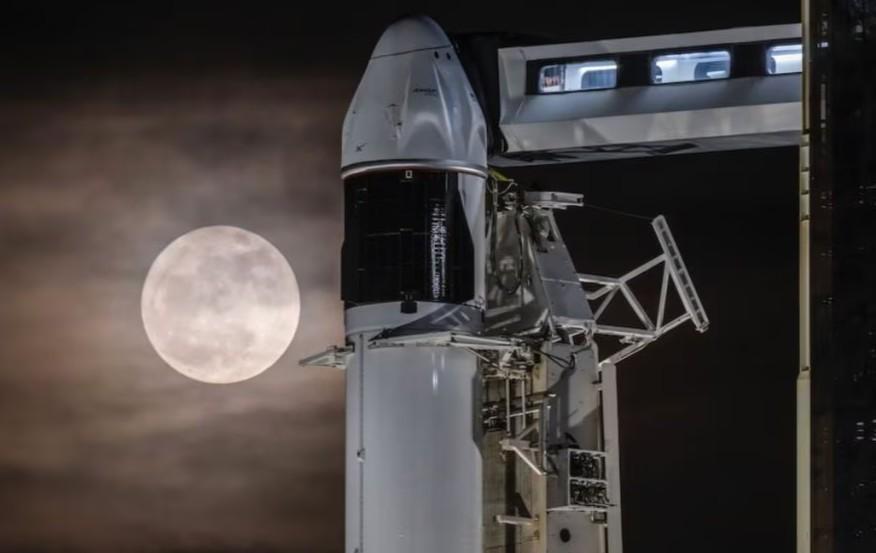
Pichai, Musk & Bezos competing to establish data centres on Moon: Report
In a surprising turn of events, three of the world’s most influential tech leaders, Sundar Pichai, Elon Musk, and Jeff Bezos, are reportedly competing to establish data centers on the Moon. According to a recent report by the Wall Street Journal, these tech giants are exploring the possibility of storing and processing data on the lunar surface. The report highlights the unique advantages that the Moon offers, making it an attractive location for data centers.
The Moon’s stable environment, with low temperatures in certain regions, could significantly reduce cooling costs for servers. This is a major advantage, as cooling systems account for a significant portion of the energy consumption and costs associated with operating data centers on Earth. The lunar surface also offers vast, open land, providing the possibility of building huge facilities without the environmental concerns and space constraints faced on our planet.
The idea of establishing data centers on the Moon may seem like science fiction, but it’s not entirely far-fetched. With the rapid advancement of technology and the increasing demand for data storage and processing, companies are constantly looking for innovative solutions to stay ahead of the curve. The Moon, with its unique environment and resources, could potentially provide a competitive edge for those who establish a presence there.
Sundar Pichai, the CEO of Google and Alphabet, has been at the forefront of innovation in the tech industry. His company has already made significant investments in cloud computing, artificial intelligence, and machine learning. Establishing a data center on the Moon could be a natural extension of these efforts, providing Google with a unique opportunity to expand its capabilities and offerings.
Elon Musk, the CEO of SpaceX and Tesla, has been a pioneer in the private space industry. His company has already made significant strides in space exploration and technology, including the development of reusable rockets and plans for a human settlement on Mars. Establishing a data center on the Moon could be a strategic move for Musk, providing a stepping stone for further space-based ventures and expanding his company’s presence in the space industry.
Jeff Bezos, the founder of Amazon and Blue Origin, has also been actively involved in space exploration and technology. His company has developed a range of space-related technologies, including rockets and satellites, and has plans for a human settlement on the Moon. Establishing a data center on the lunar surface could be a key part of Bezos’ strategy, providing a hub for data storage and processing that could support a range of space-based applications and services.
The competition between Pichai, Musk, and Bezos to establish data centers on the Moon is driven by a range of factors, including the growing demand for data storage and processing, the need for innovative solutions to reduce energy consumption and costs, and the potential for strategic advantages in the space industry. As these tech giants continue to explore the possibilities of lunar data centers, it will be interesting to see how their efforts unfold and what impact they may have on the future of space technology and exploration.
The establishment of data centers on the Moon could also have significant implications for the environment and society. By providing a sustainable and efficient solution for data storage and processing, these facilities could help reduce the carbon footprint of the tech industry and support the development of more environmentally friendly technologies. Additionally, the presence of data centers on the Moon could provide a range of benefits, including improved connectivity, enhanced scientific research capabilities, and new opportunities for space-based applications and services.
In conclusion, the report of Pichai, Musk, and Bezos competing to establish data centers on the Moon is a fascinating development that highlights the innovative spirit and strategic thinking of these tech leaders. As the world continues to evolve and the demand for data storage and processing grows, it will be exciting to see how these efforts unfold and what impact they may have on the future of space technology and exploration.





